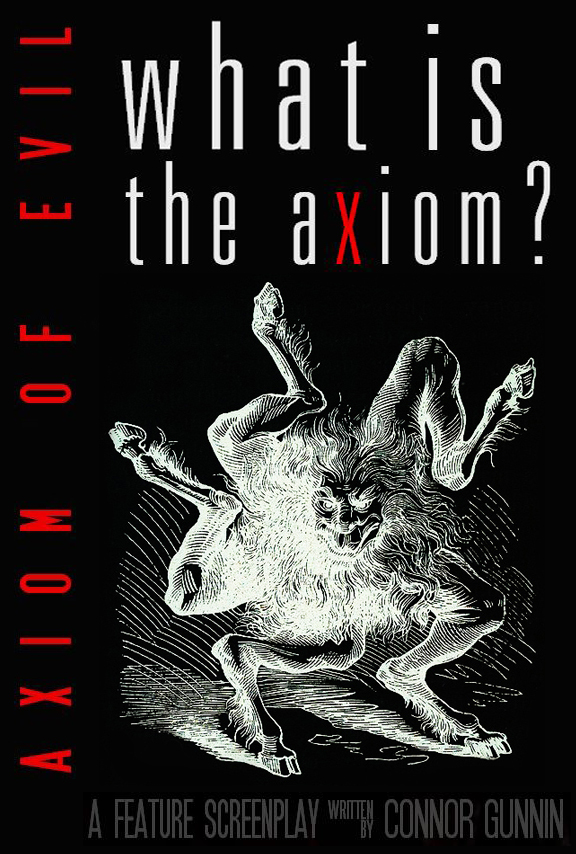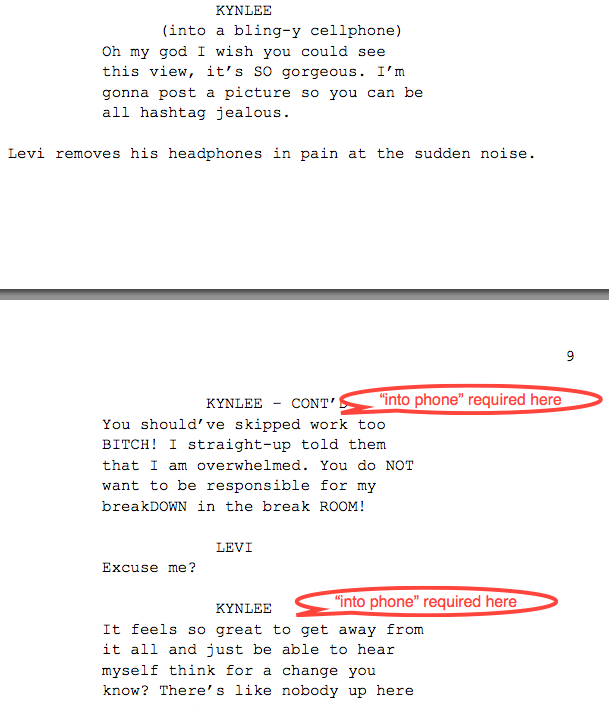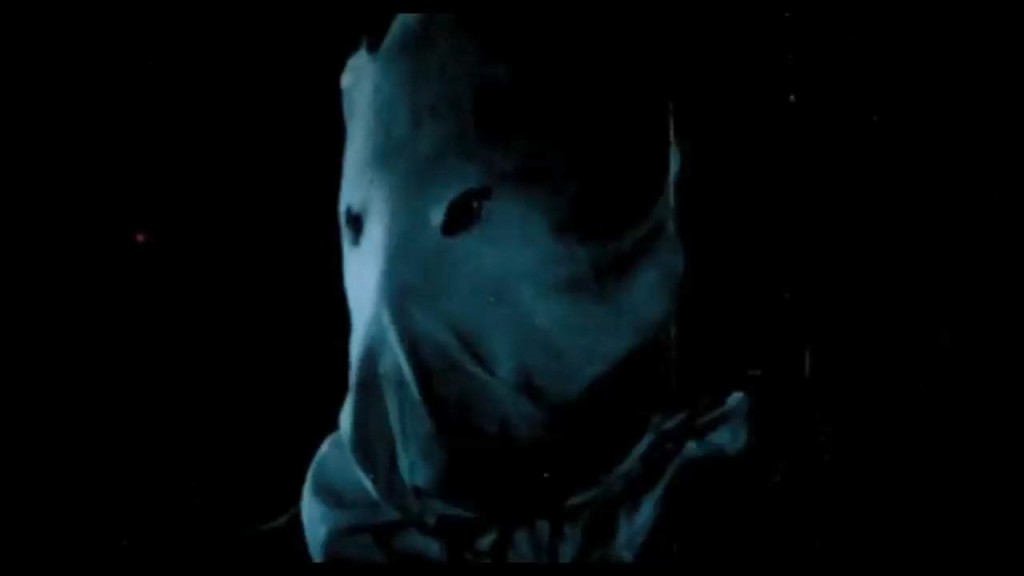Genre: Drama – Real Life
Premise: When a deep-sea drilling station encounters an unexpected series of explosions, the men onboard must scramble for their lives before the whole thing goes down.
About: This is the true story of how the deep-sea drilling rig “Deepwater Horizon” had a blowout that resulted in the largest offshore oil spill in U.S. history. The script was written by relatively unknown writer Matthew Sand, whose sole produced credit is 2009’s “Ninja Assassin.” When the rewrite assignment went out, the producers didn’t tell anyone that a key stipulation was that only writers with the name “Matthew” were allowed on the project. As such, the current rewrite is penned by Matthew Michael Carnahan (World War Z). J.C. Chandor, who directed tiny films Margin Call and All is Lost, is stepping up to the big time with this huge production.
Writer: Matthew Sand, Matthew Michael Carnahan
Details: 115 pages – December 2013 draft
Rarely do I get all world issues’n stuff on Scriptshadow, but today’s script got me thinking. Deepwater Horizon is about dangerous missions that require drilling into the most remote areas on earth, as they’re the last places we’re able to find oil.
Why are we spending so much money on getting oil when we don’t need it anymore? I mean, we need it, of course. But if we put all our focus into 15 hard years of solar, electric, or hydrogen based energy infrastructure, we’d be able to do it.
But we don’t. Why? The only reason I can think of is that oil and fuel are so embedded in our economy, that if we removed them, huge companies would collapse, companies so big that they would take the rest of the economy down with them, basically destroying America.
Is that why we keep oil around? Because our economy isn’t prepared to exist without it? It must be, with alternative energy having so many benefits. We’d have cleaner air, fewer wars, more harmony. I just can’t figure out how a country this technologically advanced couldn’t eliminate oil.
Whoa, that got deep. Speaking of deep, the Deepwater Horizon drilling rig has just dug the furthest into the earth of any drilling rig in history. 35,000 feet. That’s the equivalent of where you’re sitting to an airplane at cruising altitude.
But DH is also 60 days behind schedule. And the suits are flying in to see what the holdup is. They’re accompanied by Comms Officer Mike Williams, who’s about to be promoted to head honcho status on Deepwater.
Mike’s trying to calm the suits down, explaining that when you drill through five miles of ocean water and two miles of rock sediment, not everything goes as planned. The oil’s squeezing upwards, trying to get out of this pocket that it’s been stuck in for the past 2 million years. Eager oil is not good oil.
Once on the Deepwater, we meet all the folks who work with Mike, as well as the intricacies of the rig itself. And we really go all in here. The first 25 pages are dedicated to explaining every little pipe, every little gauge, every little nuance of this thing. It’s a lot to take in.
But the most important piece of equipment is the pressure gauge and specifically, the number 700. That’s the amount of pressure that the Deepwater Horizon can handle. If the pressure of the oil goes above that point, it’s going to blow. And blowing is bad. At least in this instance. So it’s something that has to be constantly monitored.
As you can imagine, the oil eventually hits the fan. The pressure blows past 700 to 900, which is the highest reading on the gauge.
The rest of the script turns into a sort of “Titanic but with raining fire and oil” as everyone tries to escape without their skin melting off their body. Throughout this, we’re intercutting with the bridge of the Deepwater where the safe suits, as you can guess, are more concerned with their billion dollar investment than the safety of the men dying on it. It’s because of this problem that our hero, Mike, may end as a footnote in one of the worst disasters in oil-drilling history.
Deepwater Horizon is like a good book. It’s got a heavy burden of investment. You’re introduced to a ton of characters as well as an exceptionally complicated structure. But if you stick with it, you’re rewarded with a hell of a survival thriller.
As for the opening, it’s not just the description that’s frustrating. It’s that you’re not really sure what’s being described. I don’t know what a “Moon Pool” is. Or what a “Standpipe” looks like inside of a Moon Pool. It’s all just a vague blob in my head, and as those vague blobs began to build up, I found myself increasingly unsure of what I was looking at.
But here’s a good screenplay tip for you. Sand and Carnahan knew that when it came to the most important thing on the ship, which was the drill pressure, they had to make it as simple as possible. An audience that doesn’t understand how the key piece of equipment works is going to miss the point when everything goes to shit.
So the writers created this gauge and they simply said, “THIS CANNOT REACH 700.” We had that number bludgeoned into our head. “700 bad!” And that way, they could play with it, which they did. Every other scene, we’re monitoring that gauge, and we’re seeing “550” or “600.” We’re nervously adjusting in our seats. “Oh man. That’s so close to 700! What if it doesn’t go back down?!”
Where Deepwater really excels, though, is once the oil blows. In screenwriting, the ultimate goal is to give the reader something they’ve never seen before THAT’S ALSO exciting. What I mean by that is, it’s easy to come up with something that nobody’s seen before. You could write a movie about a turtle wedding for all I care – no one’s seen that before. But to give us something new that’s also exciting? That’s really hard. And Deepwater does it.
We’ve never been on an oil rig with exploding engines and mud and fire raining down while running around through a pipe palace of metal and glass projectiles shooting at us from every direction. It just feels different. And that difference makes it exciting.
The only problem with the script is the one I mentioned above. Because we’re not actually seeing this thing, it’s hard to visually comprehend it. Even simple stuff like where one thing was located in geographic comparison to another was hard to understand. Due to that confusion, there are parts of the script that don’t make sense.
For example, we have the “boat” part of the rig. This is where the bridge is, which is where the captain is located (along with all the suits). We keep cutting back to this bridge while all this craziness is going on. But for the majority of the script, these men are totally oblivious to the skyscraper-tall fire spout raining shards of burning oil down on them.
I couldn’t, for the life of me, figure out how you wouldn’t be able to see fire raining down. I mean it’s not like you’re surrounded by a city full of skyscrapers. We’re in the middle of an ocean! You’re the only visual for a thousand miles. Maybe this room was placed in a position where that stuff couldn’t be seen (were they underwater maybe?). But because this information was buried so deep inside all the OTHER information given to us, it was hard to catch.
But outside of that, this was really good. The script does a great job of creating a sense of dread before the blow occurs, and a wonderful job of showing the unique kind of destruction that results after the blow occurred. If done right, this could be one of those surprise Gravity-breakout type hits. Rooting for Chandor to pull it off.
[ ] what the hell did I just read?
[ ] wasn’t for me
[xx] worth the read
[ ] impressive
[ ] genius
What I learned: Exposition Allowance. Every writer should give themselves an Exposition Allowance before a script. How much you’ll need will depend on what type of script it is. In scripts like Titanic and Deepwater Horizon, where the intricacies of the environments are a crucial factor in enjoying the movie later on (we’re going to be visiting a lot of these rooms and need to know how they work), it’s okay to have a big allowance. But if you’re writing a boat movie like, say, Life of Pi or Captain Phillips, extensive explanations of the boats aren’t necessary. We don’t need to know what every room looks like. In those cases, keep your exposition allowance low.
Read and vote for your favorite script in the comments. I’m really excited about this week. A long time reader, D, has submitted his script “The Brothers Ternion.” I’ve exchanged e-mails with D for a long time and know he’s a huge student of the craft. So to finally see a script from him is awesome. Excited about the other entries as well. Axiom of Evil, in particular, caught my eye. We even have a script from the past coming back for another look. But this isn’t about me. It’s about you. So get to reading and let me know what you think!
Title: The Brothers Ternion
Genre: Comedy
Logline: Three brothers, long estranged from one another, are reunited by chance in the small town of Mumford.
Who I am: Long time reader, first time submitter
Why you should read: “. . . funny, touching and extremely well written . . . I’ve never read a script in this competition that felt so complete, so much like a movie that was ready to be filmed tomorrow. I can’t say enough good things about this script. It was just a fully realized and brilliant piece of work.” – Nicholl Contest script reader for The Brothers Ternion. This quote was also featured on Nicholl’s Facebook page in May as their daily reader quote. I just found this out now, since they e-mailed reader comments to all current quarterfinalists (like myself) this week.
Why you SHOULD NOT read it: It’s NOT a GSU script (the other Nicholl reader described it as “If Wes Anderson had written Stepbrothers II”).
Title: The Berzerkers
Genre: Action/Thriller/Comedy
Logline: A team of disabled vets reluctantly reunite when their former commander drops a bombshell on them: the terrorist who caused their disabilities is in America to pull off a devastating attack, and they’re the only ones who can stop it.
Why You Should Read It: It’s a 2014 Page Awards Semifialist, a 2014 Creative World Awards Quarterfinalist, and it made the top 15% of 2014 Nicholl fellowships. There’s a wide array of reactions to the script, and I’m really curious at to what the SS readers (and you) will say. As for the script? Action galore, fast-paced, complex female characters, wild twists, dark humor, and a strong theme. Oh, yeah, GSU up the wazoo.
Title: Axiom of Evil
Genre: Horror
Logline: A womanizing psychologist trying to disprove the existence of evil must confront his beliefs when he sleeps with his much younger patient, who may be possessed by a demon.
Why You Should Read: Axiom of Evil differs from typical demonic possession films in that it delves deep into the cerebral aspects of this phenomenon that other films usually neglect. It explores the reasons why possession occurs and illuminates the mind of both the possessed and the demonic. It is a story that seeks to be as intellectually engaging and arousing as it is scary. I have put over a year of research into the subject matter and I am confident that this is a unique and original approach to the exorcism sub-genre.
Length: 112 pages
Title: Misamerica
Logline: Beverly Hills bad girl Abbey Lopez reluctantly rises to teen pop music stardom, while her one hit wonder Mother tries “making it” in the neighborhood by throwing her a million dollar Sweet Sixteen.
Pitch: “Mean Girls” meets “Pitch Perfect” in a musical teen comedy about fame, fortune, and family dysfunction.
Why You Should Read: Like the rest of them I moved to LA with not much more than a script in my back pocket… Three years and nine drafts later I eventually found myself working for a Producer and so broke that my next career move was going to be sleeping in my car. Defeated, I quit the biz and took a job at a local beauty supply store… Selling makeup… Again. — After a year of cleaning off lipsticks (and not writing), I one day found myself helping the mother of the starlet who I had written my screenplay for. I pitched it, she said to email it. A week later I got an call from that starlet’s agent at CAA. — Thanks to that fateful day my script has found her way into the stacks of some great desks, but she needs to keep going… — Carson, my baby’s name is “Misamerica”, I would love for you to meet her.
RETURN SCRIPT!
Title: Sunny Side of Hell
Genre: Action/late era Western
Logline: 1932, Texas – When a farmer’s wife is kidnapped, he races across the dustbowl-ravaged panhandle to save her from being murdered. Up against corrupt cops, the mob, and worst of all, the elements, the only man he can turn to for help is the best friend he betrayed and left for dead ten years prior. Midnight Run by way of Unforgiven.
Why You Should Read: This is the Scriptshadow trifecta right here! Original writer John Eidson had a draft reviewed on Amateur Friday close to a year ago. And the general consensus at that time was: Dude is a helluva writer, now needs to work on becoming a helluva screenwriter… Since then, he has brought on fellow Scriptshadow-ite Patrick Bonner to work in tandem, completely revamping this thing. We have utilized Carson’s original AF review, the Scriptshadow community’s feedback, and then had Carson look at the script independently, to completely tear this thing down and rebuild it as a lean, mean, GSU machine. And it’s really fucking good.
Get Your Script Reviewed On Scriptshadow!: To submit your script for an Amateur Review, send in a PDF of your script, along with the title, genre, logline, and finally, something interesting about yourself and/or your script that you’d like us to post along with the script if reviewed. Use my submission address please: Carsonreeves3@gmail.com. Remember that your script will be posted. If you’re nervous about the effects of a bad review, feel free to use an alias name and/or title. It’s a good idea to resubmit every couple of weeks so your submission stays near the top.
Genre: Rom-Com
Premise (from writer): A woman with a rare auditory disorder reconsiders her life of solitude when she meets an inquisitive sound engineer (who might just be crazier than she is). But is his interest in her a case of romance…or research?
Why You Should Read (from writer): Did you love “A Beautiful Mind” with Russell Crowe and Jennifer Connelly? Did you secretly wish it had been more like Russell Crowe’s personal life – i.e. funnier, with less math and more assault charges? — If you answered ‘yes’ to both these questions then please consider casting your eyeballs over my RomCom, The Introvert’s Playlist. I’d be grateful for any and all feedback. I’ve already pledged my first born child to BifferSpice in return for his absolutely incredible notes, but if I wind up having twins you’re all welcome to fight over the other one I guess.
Writer: Rachel Woolley
Details: 94 pages
Rachel Woolly, thank you for making me a happy man. When I opened this and saw 95 pages after a full day of work, I praised you and the Dragon Gods of Screenplay Heaven. If I’d opened a script that was more than 110 pages, I don’t know if I would’ve made it to the end. Never, my screenwriting friends, NEVER underestimate the power of a low page count. It can IMMEDIATELY put the reader on your side.
It’s been a weird last couple of weeks with a shockingly low amount of industry news. Even Comic-Con was light on talk-worthy topics. One thing I’m noticing more and more is that I no longer have a go-to site for movie news. It used to be Deadline Hollywood when Nikki Finke was running the show. But now they’re just copying and pasting press releases to keep their feed going. I thought for sure Finke’s new site was going to fill this gap, but her posting has been scarce to say the least. Why did she even start a new site if she wasn’t going to post on it?
This has left me scrounging for tidbits from multiple sites (THR, Variety, Latino-Review, Slash-Film, First Showing, The Playlist, The Wrap). And still I feel like I’m not getting as much movie news as I desire. More and more, sites are dedicating their time to television, which is great. I cover television on Tuesdays as well. But movie news is still the reason I get up in the morning. I’d be curious to hear where you guys browse around. Maybe the ultimate movie news site is out there. Or maybe there’s an opportunity for somebody new to step up and fill the gap. It might even be you.
Okay, let’s clumsily segue into today’s first Rom-Com script in forever on Scriptshadow. Iris, 29, has a rare hearing disorder where simple noises (breathing, ticking, eating) become extremely loud in her head, to the point where it’s like 17 construction companies all decided to build the world’s tallest skyscraper inside of her brain at once.
Naturally, this has made Iris quite anti-social. In fact, she spends most of her time at home, where she can control the noise. But even that’s becoming difficult, as the next door neighbor’s dog is constantly barking his snout off.
As if God hasn’t made her life difficult enough, Iris gets pulled into Jury Duty for an assault case and must sit in a quiet court room all week where simple noises go to breed. The breathing, the coughing, the hacking, the shifting. It’s like bullet holes to her face.
Strangely enough, another audio-obssessed individual happens to be the defendant in the trial. 31 year old Levi is a professional sound recorder who ended up here for supposedly assaulting a ditzy 23 year old who enraged him when she ruined his recording (by taking selfies no less).
Iris is the only one not buying the girl’s story. And after a protracted argument with the other jury members, she finally convinces them to vote Levi innocent. After the trial, Levi finds Iris and wants to thank her for helping him out.
The two get to know each other, and Levi gets a first-class seat on Iris’s insane auditory life. All of Iris’s defense mechanisms are up and she tries to go back to Alonesville so she can live in her safe little bubble again. But wouldn’t you know it, Charming Levi convinces her that love is more important than anything, including annoying breathers.
As I read my way through the first 10 pages of Introvert’s Playlist, I was really impressed. I’d seen some of the comments on the Amateur Offerings post, and while most were praising the writing, many said there were big problems with the story.
Well that wasn’t the story I was reading. The writing here was confident and strong, highlighted with perfect “show don’t tell” scenarios about Iris’s unique disorder (dismantling the waiting room clock at the dentist’s office because it was ticking too loudly). Her writing was also that perfect combination of sparse, yet informative.
But then something happened. A switch was pulled. It’s important for every writer to know when they lose their reader – which story choice broke the suspension of disbelief camel’s back. Because without that knowledge, you can never truly fix your script.
It was page 12 when it happened for me. I had just learned a ton about this unique and intriguing auditory disorder. That alone gave me tons of confidence in the writing because normally when I read a script, the writer’s droning on about something I know EVERYTHING about because I’ve read 20 scripts about the exact same thing over the past month alone. This, however, was new and fresh and different. I was in!
Then we go into this ultra-silly jury case that felt like it was made up on the spot. Having a full 12 member jury for something as insignificant as a simple assault case felt false (especially since it was so clear that the girl was lying). And once that felt false, the introduction of this entire Levi-Iris relationship felt false. And since I had to buy into that relationship in order to buy into the rest of the script, this scene ensured that I wouldn’t get into the rest of the script.
I think writers forget this. That certain scenes in scripts are so critical, that if they don’t work, they ensure dozens of other scenes won’t work either. When you’re setting up your key relationship, even in a comedy, that’s a scene you have to get right. And an overly silly court case isn’t right. There’s no truth to that scene. And when the reader senses a lack of truth, they stop trusting you.
If I were Rachel, this whole court scene is the first thing I’d ditch. Figure out another way for these two to meet each other. Make it more natural. Make it honest. Because this moment is the infrastructure for everything that happens after it. I actually wondered why Rachel didn’t put Iris up in the mountains in place of Assault Girl. This seems like a place Iris would go (to escape the noise) and therefore a more natural place for her to run into Levi.
The other big issue I had was with Iris herself. And I sympathize with Rachel because I know the balancing act she was trying to pull off here. But whatever way you cut it, Iris is equal parts sympathetic and annoying. We feel for her because we know what she’s going through. But it’s kind of like the complainer girl in a group of friends, the one who’s always too cold and she lets you know it? The first time you hear her say it, you feel bad for her. The second time, less so. The third time, it’s a little annoying. The fourth time, really annoying. And after that you just want to strangle her.
There’s a little of that going on here. I feel bad for Iris’s situation, but there were times where I just wanted to say, “Get over it!” Every script has one big balancing act you have to pull off, and I think this is Playlist’s. You have to convince an audience to sympathize with someone who’s annoyed by something no one else finds annoying. Not an easy task.
Now with all that said, there’s some quality writing here and I do see some promise in the story itself. But it needs more truth. I say ditch the over-manufactured court stuff and tell a simpler story about a unique couple. Focus on exploring the characters, not some overcooked plot. I see this as more of an indie film due to the quirkiness of our heroes, so I’d play it more drama-comedy than comedy-drama. Somewhere in the tone of Lake Bell’s “In A World.” That’d be my advice on where to go. I wish Rachel the best of luck. ☺
Script link: The Introvert’s Playlist
[ ] what the hell did I just read?
[x] wasn’t for me
[ ] worth the read
[ ] impressive
[ ] genius
What I learned: Despite my early rant about page count, page count should always be dictated by story. Several key factors will play a hand in whether your script should top out at 90 pages or 120 pages. The main two are genre and character. Fast and loose genres like Thrillers and Comedies will be around 100 pages. Thicker and more introspective genres like Period Pieces, Real Life Drama or book adaptations, can easily top out at 120. If your story has a high character count (Zero Dark 30), you’re going to need more room to fit them all in. And if you’re doing some major character exploration and/or character development (Silver Linings Playbook), you’re going to also need more pages. Then there are the miscellaneous things. Big world-building stuff (Guradians of the Galaxy) will need space, as will really elaborate plots (Burn After Reading, American Hustle). In the end, take in all this information and figure out if you need a lot of space to tell your story or not that much. Be honest with yourself, give yourself a page goal ahead of time, then try to hit it.
What I learned 2: Always put “INTO PHONE” (or “ON PHONE”) in parentheticals when a character is on the phone. Not just the first time they speak but on all of their phone dialogue lines. This is ESPECIALLY important if you’re intercutting a conversation with a third party. That’s where things start getting confusing for the reader. When Kynlee was on her phone AND having a separate conversation with Levi, I wasn’t clear who she was talking to. Here’s the first part of the exchange in question.
I recently read a script from a beginner scribe that wasn’t very good. The key problem was the plot, which was too simplistic and predictable. This simplicity bled into the scene-writing, which was also too predictable. Everything had an “obvious” quality to it, like the writer hadn’t considered any other possibilities. Frustrated, I shared the experience with Miss Scriptshadow, and we got to talking about it.
We came to an agreement that the reason the plot was so simplistic was because the writer wasn’t being discerning. He wasn’t thinking about what he was writing. He was just writing. This is both the blessing and the curse of being a beginner. A blessing because having no filter means total and utter euphoria when you write. Everything feels wonderful because you never have to think beyond your first inclination. And if it feels that good, then the writing must be good, right?
It isn’t until you’ve written a few scripts that you realize there are choices involved in writing – that it’s okay to stop and think about what you’re going to do before you do it. Because the curse side of never considering options is that your script reads option-less. The plot is either simply boring or simply messy, but it’s always simple.
Here’s the crazy thing though. I was reading another script later in the week – a professional script – and I was encountering the same problem. Not as frequently as with the beginning writer, but it was happening every fifth scene or so. I realized that it’s not just beginners who are guilty of this. The best writers in the world do it as well. It’s a slightly different variation of the practice, but it’s essentially the same thing. I call it: “Predisposed Writing.”
Predisposed Writing is when you go into a situation – usually a scene – knowing what you’re going to write beforehand. This may seem like a good thing. If you already know what you’re going to write, then it must be a good scene! What other explanation could there be for being so certain about something?
But if you already know what you’re going to write, chances are the reader’s going to know what you’re going to write as well. That means you’re writing a scene that they’ve already imagined. And if that happens, you’re boring them. Readers (and audience members) can be sympathetic to this for a scene or two. But if it keeps happening, boredom sets in, and they officially check out.
I’m not saying that your first inclination for a scene is always wrong. It may actually be brilliant. But you owe to yourself to STOP before you write a scene and think about other options. Chances are, there’s something better in the cupboard.
Let’s try to look at this visually. I want you to pretend that you’re an interior designer and imagine you’ve just walked into an empty room, a room which you’ll be designing.
A bad (or beginning) interior designer is going to go into this room with a predisposed point-of-view. They know what a basic room looks like. So that’s what they’re going to give the client. A TV near the corner by the cable outlet. We’ll throw the couch back against the wall. Maybe a vase by the TV to make it look nicer. A lamp or two. In your head, you’re imagining this is going to look pretty killer. Then, when you put it together, you get something like this…
Now you’re looking at this room and probably saying, “Oh my GOD. I would kill myself if I had to live in that space!” Well folks, you’re looking at the visual equivalent of 90% of the scenes I read in amateur screenplays. They’re that dull, that lifeless, that devoid of creativity, and it boils down to writers being too set in their ways.
A good interior designer’s first step is to let their initial inclinations wash over them. Not ignore them. They may still use them. But first they want to explore some not-so-obvious choices. Maybe a nontraditional couch as the centerpiece. A cowhide rug instead of a boring hardwood floor. How does the light come in from the windows? Is there any way to arrange the room to accentuate that? With this approach, you’re more likely to get something like this…
Notice how much more thought was put into this room. Notice how they went with a hardwood floor AND a rug. Look at how the rug is shaped. Look at how funky the couch is. Look at the unique shelves placed on the wall. The other designer didn’t even put shelves on the wall. This room is infinitely nicer than the one above.
Now I can already hear some of you crying foul. “That’s cheating, Carson. The second room has a floor-to-ceiling window and costs a hundred times as much to furnish.” I admit that the analogy breaks down a little in that sense, but not really. With writing, the only currency is time. You have no budgetary considerations. If you take the time to challenge yourself and flesh out your ideas, you can create windows with the most beautiful views in the world. You can put a 20,000 dollar couch in your room. You can change the walls to brick. An imagination is infinite, and when you predispose your writing, you prevent yourself from mining all those possibilities.
Predisposed Writing is not just a scene thing. Writers come in with predisposed characters. They come in with predisposed relationships. They come in with predisposed concepts. The thing to remember with writing, especially screenwriting, is that nothing is set in stone. You can have an idea for something, but once you’re tasked with putting that “something” down on paper, it’s your job to challenge it. Your mind, more or less, has been trained by society to think and act like other minds. Which means most of what you come up with is the same kind of stuff other people come up with. Going against your predisposition, then, is the only surefire way to provide a unique experience for the audience.
Let’s apply this practice to an actual scene, shall we? Let’s say we’re going to write one of the more common scenes in screenwriting, a cop arresting someone, let’s say a drug dealer. Now you’re probably already imagining how this scene is going to play out, right?
My predisposed version has a sketchy dealer on a street corner in a bad neighborhood, dealing dope to some loser. Our officers pull up their car, pop out. The Dealer ushers the buyer away, turns to our officers as they’re approaching, an innocent smile at the ready. Looks like this isn’t the first time they’ve met. There’ll be some funny “we’ve been through this before” banter between the three. But the Dealer senses that something’s off, that they might actually arrest him this time. He decides to make a run for it. They chase him down. Catch him. Scene over.
Hmm, how many times have we seen that before? It might as well be in the Predisposed Hall of Fame. So let’s see what happens when we spend some time considering other options. Again, there’s no law that says you have to write these options into your script. All you’re doing is considering them.
A dope dealer in a bad neighborhood is cliché, right? So what if we made our dealer a… grand piano salesman who deals dope on the side? Our cops have evidence he’s dealing so they go to the piano store to arrest him. Inside, a child prodigy is loudly playing Beethoven’s 9th on a nearby piano. Our cops attempt to ask the salesman a few questions (or read him his Miranda Rights), but the annoying prodigy is playing louder and louder (secretly cued by the salesman?), resulting in a lot of “I’m sorry, I can’t hear yous.” In a moment of distraction, the salesman slams the piano flap down on one of the cop’s hands and makes a run for it. The prodigy breaks into some chase music.
This may or may not be the best scene ever. I’d certainly want to take it through a few more drafts, but it’s more inventive and less cliché than the previous scene.
Now obviously I’m writing with free rein here. Within the context of your story, your dealer may have to be on the street. That’s fine. Then you simply ask what other ways you can make the scene different. Maybe the dealer only speaks Spanish, creating a translation problem. Maybe the dealer’s the brother of one of the cops, complicating the arrest. The options are limitless, but they’re only there if you search for them.
In closing, all I ask is that you not get wrapped up in any predisposed notions when you write. Always consider other possibilities. I promise you that if you perfect this practice, you’ll become a much better screenwriter.
Genre: Horror
Premise: A long-forgotten killer from the 1940s reappears in the present day to wreak havoc on a small town.
About: Blumhouse ain’t stopping any time soon. The business savvy Jason Blum realized that we haven’t created an iconic slasher movie monster since the 80s. And why wouldn’t you, seeing as you can milk over a dozen movies from a memorable antagonist. “Sundown” is written by Roberto Aguirre-Sacasa, who scripted the remake of Carrie, and has also written on the TV shows “Glee,” and “Big Love.” The film will be directed by Alfonso Gomez-Rejon, who directed some episodes of American Horror Story, as well as Black List script, “Me & Earl & the Dying Girl” (cancer is in, baby! Producer: “I love it. When the hero saves the girl from the terrorists in the end? One of the best climaxes I’ve seen all year. Buuuu-ttttt, is there any way we can add more chemotherapy?”). In classic Blum fashion, the movie will star a bunch of unknowns. ☺
Writer: Roberto Aguirre-Sacasa (inspired by the film by Charles B. Pierce)
Details: 100 pages (2/25/2013 draft)
Don’t know much about this one other than that it’s a Blumhouse Production. Typically, I don’t review horror scripts unless they’re for Amateur Friday (where a lot of them seem to win the slot). But since Blumhouse so rarely misreads the public, it’s important, if you’re writing horror, to pay attention to whatever this guy does. Cause whatever he’s doing is setting the trend. Until someone else comes along at least.
Get your note pads out, because “Sundown” has one of the more needlessly complicated setups I’ve read in a screenplay. The story takes place in a town called Texarkana, which is a “double town,” split on the border between Texas and Arkansas.
Over half a century ago, in 1946, there was a series of horrific murders by a serial killer who wore a bag over his head. The man, who was never caught, was dubbed the “The Phantom Killer.” Flash-forward 30 years, and they made a movie about the murders, which became a cult hit. Now, every year in Texarkana, they show the movie all over town so people can freak out about their town’s very own ancient serial killer.
We’ll put an asterisk by “ancient” because it’s now present day. And when two teenagers, Cory and Jami, drive to a secluded area to do what kids in cars driving to secluded areas do, they see a man standing by the car WITH A BAG ON HIS HEAD!
We’re not sure if this is in protest to the new Los Angeles law that requires you to buy paper bags for your groceries or not. But whatever the motive, the bagged one pins Cory down and rapes him while repeatedly stabbing him. He makes Jami turn away, so neither she, nor we, can see what’s happening. But we can hear it. And our surly imagination is much worse than whatever’s happening behind this chick’s face.
While Cory doesn’t make it, Jami is somehow able to escape the killer, and the next day, the town goes into full-on Freak Out Mode. Is this a copycat killer performing a one-night thrill kill? Or is The Phantom Killer back!? And if so, how is he back? He’d be, like, 90 years old by now. Is he going to kill people with his acid reflux?
Long story short, our killer keeps on killing while Jami becomes a little investigator, researching all the murders dating back to that first fateful kill. As she slowly puts the puzzle pieces together, she thinks she knows who the killer is. But is it too late? The killer may have one last big kill in him before going into hibernation for another 70 years.
The Town That Dreaded Sundown should’ve been dreading its overly elaborate setup. There is a lot of information given to us in the first act that could’ve easily been summarized as “the killer’s back.”
A serial killer in the 1940s. A movie about those killings 30 years later. A complicated border town with two mayors. All that stuff would’ve been cool IF IT ACTUALLY MATTERED. But if you never mentioned any of it, we’d still know exactly what was going on. Psycho Freak who’s pissed about the paper bag grocery law is killing people and he needs to be stopped. 1940 doesn’t need to tell me that.
The irony is that once you get past that first act of exposition, the story becomes blazingly simple. A slasher is killing people. Our hero is trying to figure out who he is. Which meant for the next 50 pages, I was consistently 30 pages ahead of the writer.
Here’s the thing. Horror movies are all the same. They’re broken down into a few different categories (slasher, ghost, monster-in-a-box), but once you know which one you’re watching, the movie becomes incredibly predictable.
For that reason, you want to take whatever’s unique about your idea, and infuse that into the plot as much as possible, since that’s the only opportunity you have for making your script different. If your horror movie takes place on a pig farm, for example, I better not see a garden variety slasher flick. I should see horror where pigs are involved in various ways.
So here, I kept waiting for this double-town thing to work its way into the plot. Or this 1940s stuff. And the 1940s stuff does peek in every once in awhile. Maybe, for instance, the killer could be the son of the original #1 suspect in the killings. But in the end, nothing surfaced from that first year that affected the plot. It was still a killer with a bag trying to kill people.
Why not create friction between the border towns to begin with? And then this serial killing thing starts and each mayor has a completely different idea on how to tackle the problem. This causes a lot of conflict between the mayors and the towns. Maybe one of the towns is poorer, so the assumption from the richer town is that the killer must be from the “degenerate” side of the tracks.
You know what, if you really wanted to add some tension, why not set this on the border between the U.S. and Mexico. Now you can really explore some crazy shit.
As far as the 1940s stuff, I’m not sure placing the original killings in the 40s was the best thing for the movie. It’s too far in the past for us to believe that the same killer could return. If you changed the original murders to the late 1970s, now it’s conceivable that the original killer could be back. Again, 1940s sounds cool cause it’s so long ago but you can’t put “cool” things in your script if they don’t serve the story in an interesting way. Every choice you make must serve the story.
That’s not to say “Sundown” was bad. It had some really good scenes. The early scene with Corey getting raped while we stayed on Jami’s horrified face, looking in the other direction, imagining what was happening behind her – that was good stuff.
One of the most important things about being a horror writer is knowing when to show something and when not to. Sometimes, not showing is infinitely scarier. I’d go so far as to say that every scary moment in your script – you should consider both options. Should you show the horror or not? Your first inclination may be to show it. But always consider the alternative. It might surprise you.
“Sundown” isn’t breaking any new ground, which is a shame, because it could’ve. It had such an information-heavy setup that I was sure all this information was going to be used to create an elaborate horror plot that I’d never seen before. Instead I got “Halloween” but with a not-as-cool mask. Not a bad script. But not that good either.
[ ] what the hell did I just read?
[x] wasn’t for me
[ ] worth the read
[ ] impressive
[ ] genius
What I learned: Very important for writers to know. If you’re writing 5 line paragraphs or longer, the reader is skimming through those paragraphs. Lots of writers laugh in the face of the “stay under 4 lines” rule of writing action paragraphs. But readers HATE huge chunky paragraphs and they take it as an insult when you write them. They fight back by skimming. To prevent this from happening, keep your paragraphs short!










